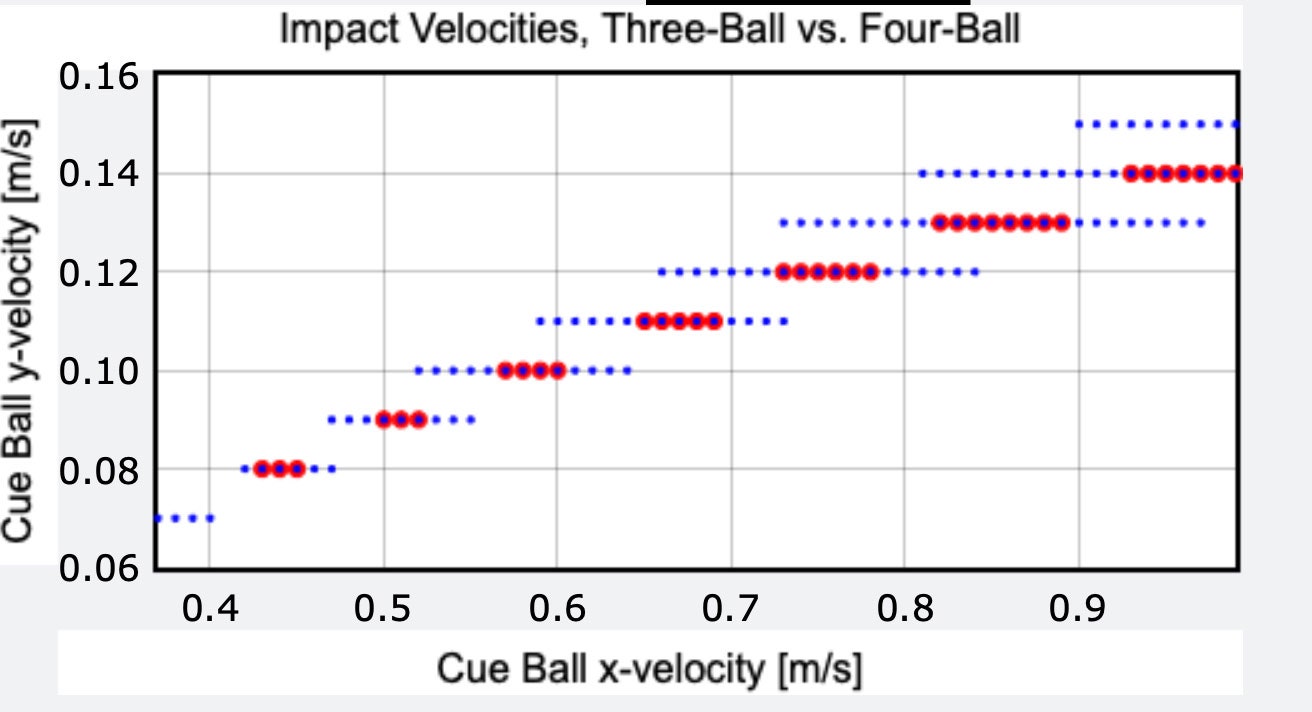Think of this plot in terms of area. The area on the graph covered by the blue data (to hit the 2 ball) is much greater than the area on the graph showing the velocities required to hit the 3 ball. It’s getting much more difficult to achieve a collision that involves all four balls.
Let’s do one more. What if I add in a 4 ball to the chain of collisions?
Illustration: Rhett Allain
Just to be clear, this is a comparison of the range of initial cue-ball velocities that result in the 3 ball hitting the 4 ball. Let me go over some rough ranges for the initial velocities of the cue ball.
To make the 1 ball hit the 2 ball, the x-velocity could be from close to 0 m/s to 1 m/s. (I didn’t calculate the velocities greater than 1 m/s.) The y-velocities could be from about 0.02 to 0.18 m/s. That’s an x-velocity range of 1 m/s and a y-velocity range of about 0.16 m/s.
In order to have the 2 ball hit the 3 ball, the x-velocity could be from 0.39 to 1 m/s with the y-velocity from 0.07 to 0.15 m/s. Notice that the x-velocity range dropped to 0.61 m/s and the y-velocity range is now 0.08 m/s.
Finally, for the 3 ball to hit the 4 ball, the x-velocity could be from 0.42 to 1 m/s and the y-velocity from 0.08 to 0.14 m/s. This gives an x-range of 0.58 m/s and y-range of 0.06 m/s.
I think you can see the trend: More collisions means a smaller range of initial values that will result in a hit on the final ball.
Now we need to test the final case: nine balls. Here is what that looks like:
Video: Rhett Allain
OK, that works. But will that last ball still get hit if we factor in an extra gravitational force caused by the interaction between the cue ball and the player?
This is fairly easy to test. All I need to do is add some type of human. I’m going to use an approximation of a spherical human. I know, people aren’t actually spheres. But if you want to calculate the gravitational force due to a real player, you would have to do some seriously complicated calculations. Each part of the person has different mass and would be a different distance (and direction) from the ball. But if we assume the person is a sphere, then it would be the same as if all the mass was concentrated at a single point. This is a calculation we can do. And in the end, the difference in gravitational force between a real and spherical person probably wouldn’t matter too much.



